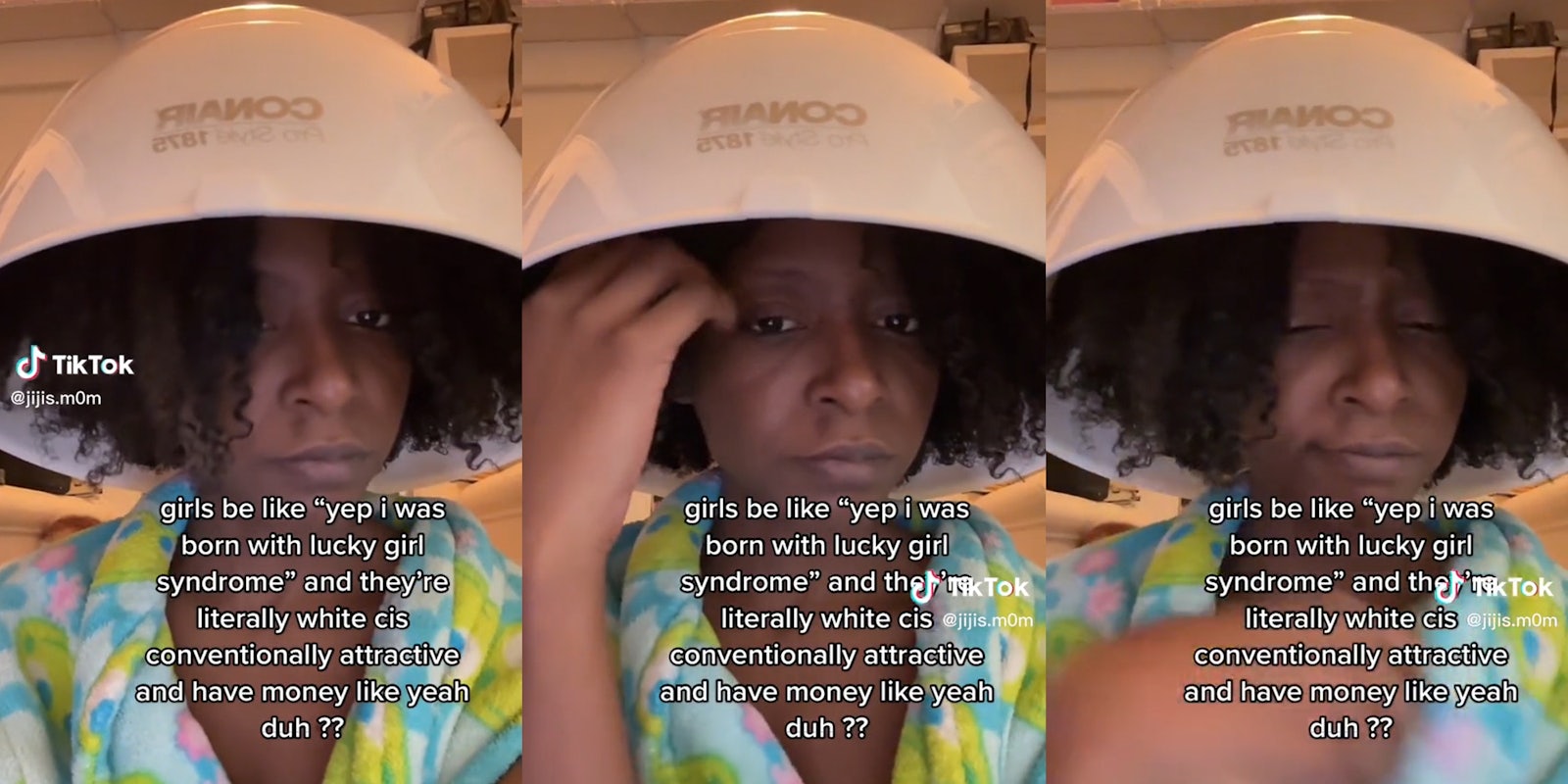Problematic on TikTok is a weekly column that unpacks the troubling trends that are emerging on the popular platform and runs on Tuesdays in the Daily Dot’s web_crawlr newsletter. If you want to get this column a day before we publish it, subscribe to web_crawlr, where you’ll get the daily scoop of internet culture delivered straight to your inbox.
Analysis
There are all types of “girls” on TikTok: clean girls, weird girls, mall girls, all of which have their own style and grouped aesthetic.
But in the last couple of months, a new “girl” has made it big on TikTok, and she’s more of a mindset than a “look.” Her name seems like a diagnosis—but the kind you’d want to get. She is “lucky girl syndrome.”
It all started with a video of two college students eating Chinese food in a car, wherein they explain that they have started saying “everything works out for me,” or “everything works out for us,” to a point where they started to believe it. And, they say that things truly have started to work out for them: specific restaurants they’re craving are open when they want takeout, their housing placements were favorable, and they passed their final exams.
And their video has spawned into a movement. A TikTok audio of “lucky girl affirmations” has been used in over 25,000 videos, and a song by Carlina called “lucky girl”—released last month amid the trend—has over 625,000 plays on Spotify. Carlina’s song, which has been used in over 17,000 TikTok videos about lucky girl syndrome, sounds like affirmations, too.
“I’m a lucky girl, and all good things come to me, flow to me, move through me,” Carlina sings. “Everything works out for me.”
But some lucky girl syndrome videos veer into manifestation hoaxes: TikTokers promise that if viewers make a TikTok using the sound they have in their video, they’ll get whatever they’re wishing for. These types of videos simply drive up views and engagement for the poster, rather than guarantee that viewers can get their desires because they’ve used a TikTok audio.
“Lucky girl syndrome” has its detractors. Some have pointed out that it’s simply a rebranding of the law of assumption, or the idea that if you believe something to be true, it will come true. But others have noted that “lucky girl syndrome” feels a lot like white privilege.
“Girls be like ‘yep I was born with lucky girl syndrome’ and they’re literally white cis conventionally attractive and have money,” TikToker @jijis.m0m wrote in the overlay text of a TikTok. “Like yeah duh.”
Why it matters
All “lucky girls” aren’t white, but after a quick scroll on TikTok, it’s evident that a majority of “lucky girls” are. And divorcing the “luck” that white people—who historically have more generational wealth due to historical systems that oppressed Black people—have from their privilege is a dangerous separation.
There’s no harm in believing that affirmations and manifestation can positively affect one’s life, but don’t forget who’s at a categorical advantage in society.

